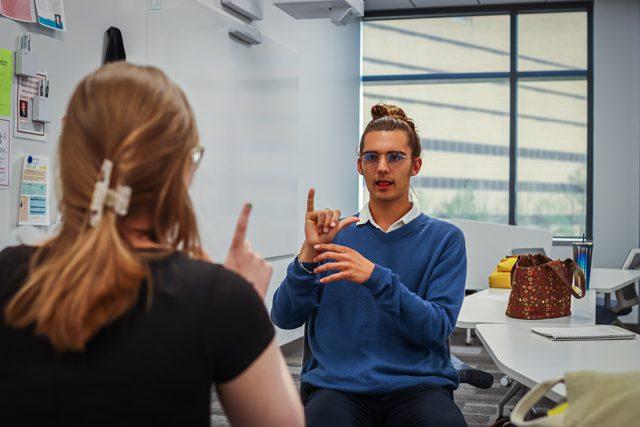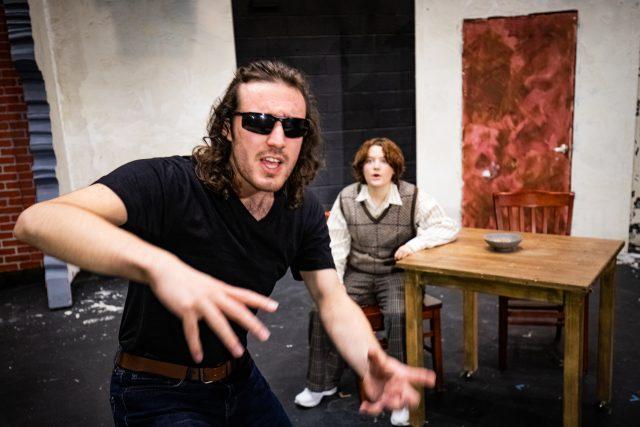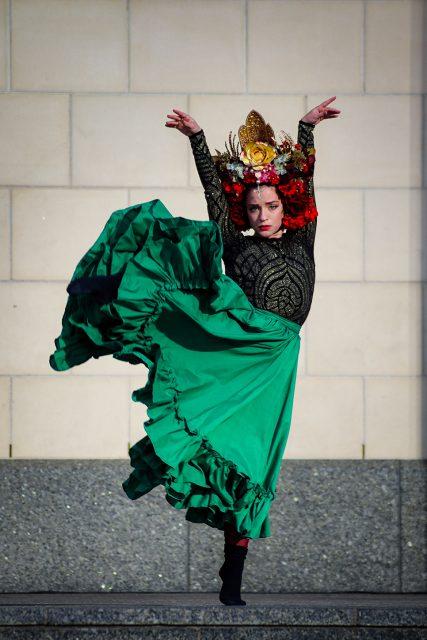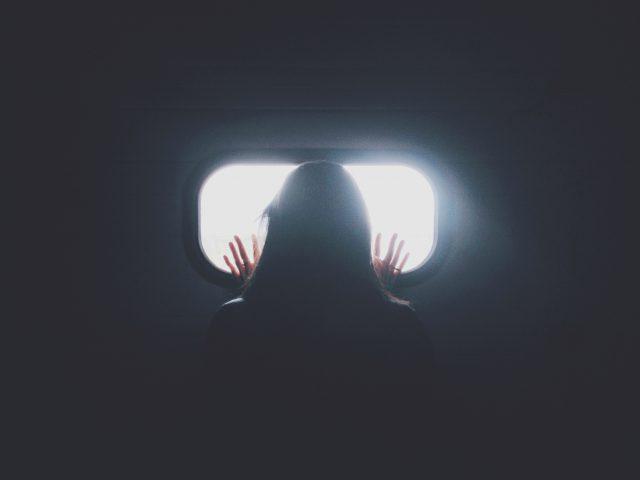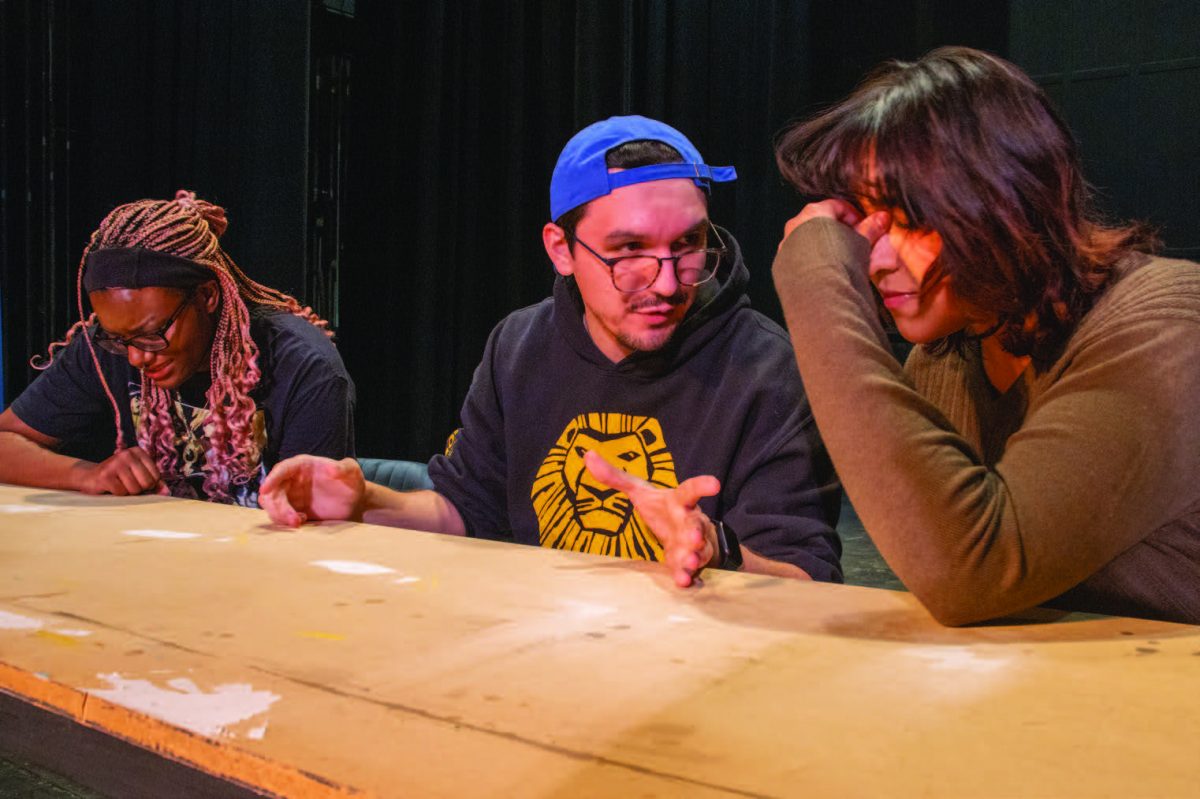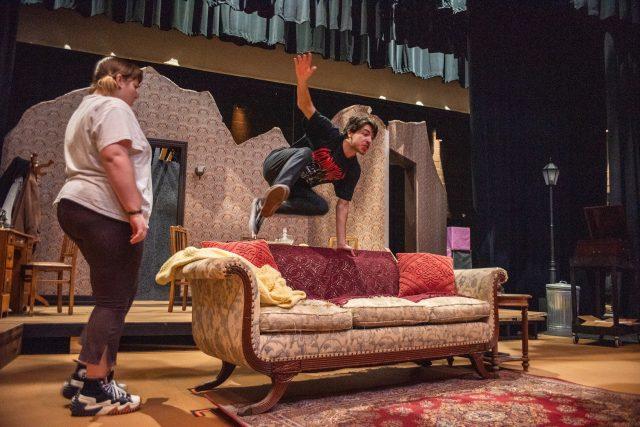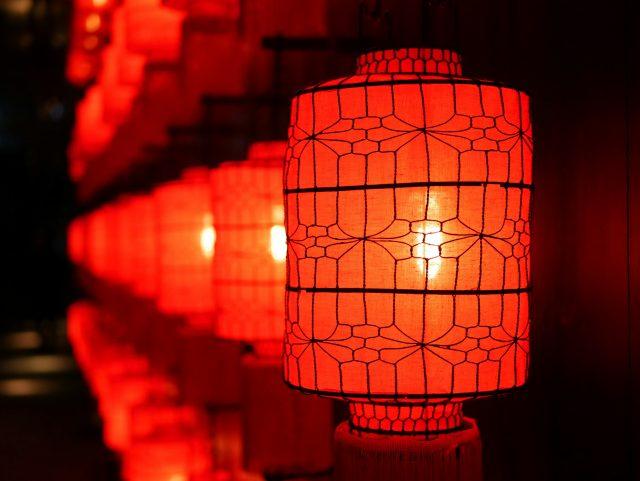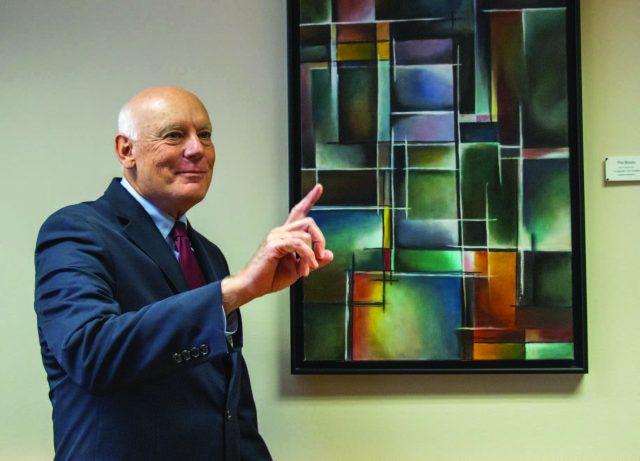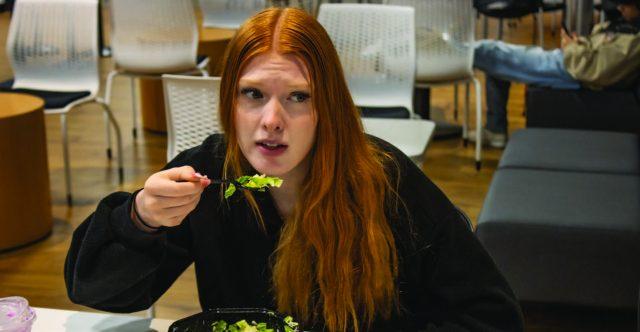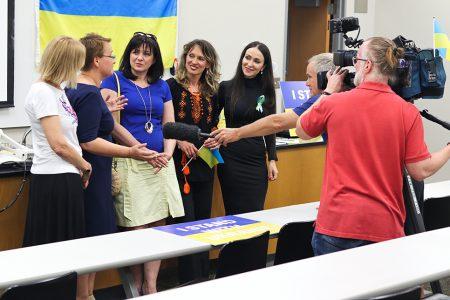
Alex Hoben/The Collegian
CORRECTION | APRIL 20: The sentence “Obidov is still haunted by a moment she witnessed when a little girl and her mother were killed by a mortar attack” was changed to “Obidov is still haunted by a moment she witnessed when a little girl was killed by a mortar attack” for accuracy.
JUAN SALINAS II
senior editor
juan.salinas465@my.tccd.edu
With the war in Ukraine ongoing, SE Spanish instructor Oksana Nemirovski wanted to have an outlet to talk about it, so she hosted Hard Talk.
Nemirovski wanted to focus on how it’s been impacting ordinary people, so she had five Ukrainian guests speak to students about their experiences.
The first speaker was Irina Rodriguez, a professor of modern languages and comparative literature at the University of Dallas. She is originally from Kharkiv but moved to the U.S. in 1998. She spoke about the history of Ukraine and Russian President Vladimir Putin’s reasons behind the invasion.
“People started to open their eyes about how vicious his propaganda is,” Rodriguez said.
She said Russia’s talking points for the war are misleading and some even outright false. She said she believed in some of the propaganda until 2014 when Russia annexed parts of Ukraine.
“In 2014, that is when I really felt my identity lies with Ukraine,” Rodriguez said. “[Putin] probably thought he was going to be met with open arms in Ukraine.”
She said that more Ukrainians are nationalists than ever before and are ready to push away the invasion for as long as possible.
Dallas fashion designer Helen Obidov also shared her experience during the annexation of Ukraine.
“Eight years ago, Russian invaders came to my peaceful city in eastern Ukraine,” Obidov said.
Obidov said she heard unfamiliar sounds that turned out to be grenade explosions and gunfire. She describes how Russians took over important government buildings, starting with the police building and city hall.
“Russian invaders were pointing their machine guns at passing cars, and when the car would stop, they would throw out the driver and take them away,” she said.
Obidov said she was threatened during an interview with Russian media. They wanted her to talk about how oppressed she was when Ukraine was in control and how grateful she is to Russia for invading.
“They had the text prepared in advance, and there was a man with a machine gun that had me at gunpoint,” she said.
Obidov is still haunted by a moment she witnessed when a little girl was killed by a mortar attack. She said war isn’t a video game, it must be stopped at all costs.
It took Olena Partow five days to escape the current invasion of Ukraine on her annual trip to see her parents.
“War comes suddenly,” Partow said. “No one calls you. ‘Hey Oksana, we’re going to bomb you at 5 p.m.’”
While she was escaping Ukraine, she said she felt optimistic because she’s American, so she would get the help she needed.
Partow expressed her frustration with Americans’ attitude about the situation.
“Stop complaining about gas prices,” she said. “Skip a couple of cups of your Starbucks per month and you will be good.”
Partow said people should be grateful to be in a first-world country not dealing with the direct effects of war because the Ukrainian people have lost everything.
“Putin is an evil guy and a terrorist,” Partow said.


















